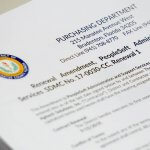California Supreme Court invalidates most non-competes
According to this release over at Morgan Miller Blair, the California Supreme Court has completed the task of invalidating virtually all non-compete agreements within the state of California:
In Edwards v. Arthur Andersen, the Court examined an employment agreement between Arthur Andersen and one of its former tax manager employees, Raymond Edwards. The agreement contained a typical non-competition clause, prohibiting Edwards from working for or soliciting Arthur Andersen clients for limited periods after his employment ended. Edwards later alleged that the non-competition agreement violated Business and Professions Code section 16600, which states: “Except as provided in this chapter, every contract by which anyone is restrained from engaging in a lawful profession, trade, or business of any kind is to that extent void.” The trial court ruled in favor of Arthur Andersen, but the court of appeal reversed, finding for Edwards.
The Supreme Court largely affirmed the ruling of the court of appeal, holding that the non-competition agreement was void. The Court emphasized California’s strong public policy favoring open competition and employee mobility, and determined that non-competition agreements are permissible only if they fit within one of the statutory exceptions to section 16600. Those exceptions authorize non-competition agreements in connection with the sale or dissolution of corporations, partnerships, and limited liability companies. None of those exceptions were present in the Edwards case.
California law has long moved in this direction — non-compete agreements have always been hard to enforce in California, particularly in the technology industry — but the California Supremes have made it official and rather sweeping.
As the article goes on to point out, most companies are now left primarily with trade secret enforcement as a means of guarding against what they feel is unfair competition from former employees. However, that requires the company to take active steps to define and protect its trade secrets, including appropriate confidentiality and intellectual property agreements, as well as security measures (both physical and electronic). It also raises the perennial issue of what is a trade secret vs. what is domain expertise.
Hat tip to Mary Enmark at MMB. ..bruce..




![The Meltdown/Spectre CPU bugs: a dramatic global case of the “Unintended Consequences” pattern [UPDATED 4/4/18] The Meltdown/Spectre CPU bugs: a dramatic global case of the “Unintended Consequences” pattern [UPDATED 4/4/18]](http://bfwa.com/wp-content/uploads/2018/01/intel-cpu-150x150.jpg)